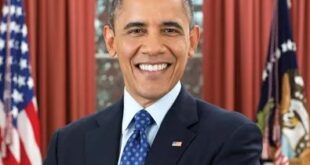Under the current administration, Nigerians have seemingly become accustomed to unusual, absurd, unrealistic, shocking, disturbing, and mentally draining news. From how snake swallowed JAMB funds, to how rats took over the office of the President, the unending list of fictitious news has become accepted by Nigerians, even as we expect the new month to be filled with gists and gossips which is good business for the media.
In the past week, Nigeria’s economic security has been a subject of discussion fuelled by the Governor of Edo State, Godwin Nogheghase Obaseki, who exposed that the Federal Government printed about N50-N60 billion to augment March allocation to States.
The Governor who is regarded as a financial expert having served as a stock broker, project manager, and financial adviser amongst many other roles, attributed the action of the government to its failure to generate internal revenue from taxes due to over dependency on federal allocations monthly.
Obaseki who stated that Nigeria was in ‘huge financial trouble’, also cited the over dependency on crude oil over the years as part of the problem. According to him, Nigeria was currently losing her grasp on the petroleum industry as its major investors were gradually pulling out.
“The current price of crude oil is only a mirage. The major oil companies who are the ones producing are no longer investing much in oil. Shell is pulling out of Nigeria and Chevron is now one of the world’s largest investors in alternative fuel,” Obaseki said.
According to the Governor, by the end of the year, Nigeria’s total state borrowings would be within N15-N16 trillion, which is double of the current state debt approximated to the tune of N4.2tn, according to the National Bureau of Statistics (NBS).
Reacting to this, economist and former President, Chartered Institute of Bankers of Nigeria (CIBN), Okechukwu Unegbu, said it would not be in the best interest of Nigeria if the federal government truly printed N60billion for the March FAAC sharing.
He said any such decision was dangerous for the economy.
He said it was better for the economy to be in deficit borrowing than for the economic managers to print money not backed by production.
“Public finance is my area of specialisation and I know the dangers of printing money that is not backed by production. It means the country is broke and the governor is raising the alarm,” he said.
According to Unegbu, money should be backed by what is produced; foreign reserves, otherwise it gives room for hyperinflation.
Although the Nigerian government has on several occasion through the Minister Finance, Budget and National Planning, Zainab Ahmed as well as the Central Bank of Nigeria (CBN) denied Obaseki’s claim, highlighting that the Federation Accounts Allocation Committee (FAAC) distributed revenue generated by MDA’s, Para-militaries as well as various parastatals; how viable is the integrity of Nigeria’s government.
Despite hinting that Nigeria’s debt status was sustainable, Ahmed emphasized the need for the improvement of the country’s capacity to Service its debt but also its affairs.
“On the issue of the borrowing, the Nigerian debt is still within sustainable limit. What we need to do as I have said several times is to improve our revenue to enhance our capacity to service not only our debt but to service the needs of running the government on day to day basis.
“So, our debt currently at about 23% to GDP is at a very sustainable level. If you look at all the reports that you see from multilateral institutions.”
Riddled with many doubts from its citizens, are the Nigerian government one to say that a sitting governor’s accusation is false? Are the accusations levelled by a financial expert who has served as a stock broker, project manager, and financial adviser amongst many other roles?
Questions as to why Obaseki would be lying and what would be his gain in propagating lies to a government who are his allies have been raised by scholars.
Even if Obaseki lied, both the Minister and the CBN are yet to deny the claim of the governor that Nigeria’s debt would be N15-N16 trillion by the end of the year, from N4.2 trillion. This is big shocker to an administration intertwined with excuses.
Recall, the federal government had at many times formed unhealthy habits of keeping silent to very disturbing accusations or even denying various reports despite very visible evidence.
One of such was the aftermath of the #EndSARS campaign where many forerunners had alleged harassments by the Immigration Service or seizure of their passports. The Ministry of Interior denied this allegation, stating that they did not generate a ‘no-fly’ list despite many protesters publicly pointing fingers at the Federal Government.
Within the time frame of the development of the ‘no-fly’ lists, the CBN was also said to have flagged the accounts of protesters, a claim which they denied at first and later excused themselves with allegations of these accounts used in sponsoring terrorists.
More recently, the federal government despite many complains of insurgency in the North East, had announced that Boko Haram was ‘technically defeated’. A claim they have held onto despite Boko Haram taking several states hostage in the north.
According to financial media Business Day, “the gross monthly distribution by the Federation Account Allocation Committee (FAAC) to the three government tiers and eligible agencies totalled NGN640bn (USD1.56bn) in February, 2021. This was NGN21bn above the previous month’s pay-out according to a report by FBNQuest. This latest pay-out to states falls far short of their spending, which averaged NGN351bn per month in 2018 and NGN396bn last year”. Ultimately, the money distributed by FAAC would not even have covered their salaries and pensions in aggregate.
A comparison to the credentials and career history of both individuals, shows that the Edo state governor is more versatile and aware of every financial statement he makes. Having travelled and worked within and outside the shores of the nation, his alarm is one that shouldn’t be taken lightly or ignored. No wonder his bold proclamation has raised some form of dust for almost a week. One would ask why he was silent at the point of action and why did he only react recently? Are there other financial mishaps being hidden by the Aso Rock cabals? Or is the governor’s revelation all part of a bigger picture yet to be unveiled?
The most puzzling amongst many things, is why Mrs Ahmed who is the Finance minister seems to be getting less of the heat. A minister in charge of the country’s finance is side-lined and instead, the governor of the central bank is always asked to give account for financial mishaps. This is not a case of gender consideration because the two female ministers who preceded her, all faced the heat and received summons almost every week. So, is Ahmed’s absolution based on her region and ethnicity? That school of thought is not far-fetched.
 Gistfox Your News Window To The World
Gistfox Your News Window To The World 




